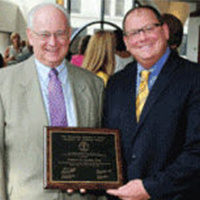Kent Felony Lawyer, New York
Sponsored Law Firm
-
 x
x

Click For More Info:
-
Cohen & Bernstein, L.L.C.
1360 Clifton Ave #309 Clifton, NJ 07012» view mapCriminal Defense We’re In this Together!
We work hand in hand with our clients to ensure all of your questions are answered and progress through your legal issue is seamless.
800-978-7341
Not enough matches for Kent Felony lawyer.
Below are all Kent Criminal lawyers.
Dominic Paul Candino
✓ VERIFIEDPersonal injury and criminal law is a complex collection of ever-changing legislation and case law. Many of those injured by a third party's negligen... (more)
Bernard D. Levine
✓ VERIFIEDBernard D. Levine is a practicing lawyer in the state of New York.
Derek Akiwumi
✓ VERIFIEDDerek Akiwumi, representing clients throughout WNY, has a proven reputation for getting the results you need. From criminal defense, appeals, and pers... (more)
Gregory A. Franklin
✓ VERIFIEDAn adoptive parent himself, Gregory Franklin has experienced first-hand the challenges and joys of adopting a child. Adoptions involve a highly emotio... (more)
Karl Martin Myles
✓ VERIFIEDMy Web designer told me that I had to provide him with more information on myself to explain to people better who I am. Specifically he said for me to... (more)
Paul Becker
✓ VERIFIEDPaul B. Becker, Esq. is committed to providing you with top notch legal services. I approach every client with a focus on integrity, advocacy, and und... (more)
Susan Kathleen Duke
✓ VERIFIEDI consider communication to be a key aspect of the lawyer-client relationship, which is why I return phone calls and emails promptly. My clients have ... (more)
Gary A. Joseph
FREE CONSULTATION
CONTACT Lindsay Bernstein Clifton, NJ
Lindsay Bernstein Clifton, NJ Practice AreasExpertise
Practice AreasExpertise







